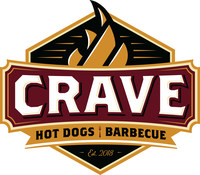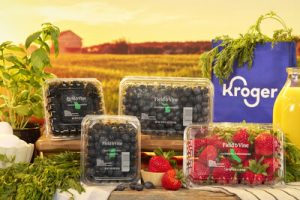 Crave Hot Dogs & BBQ is launching its Crave Express Model within Walmart locations. Crave has expanded nationally with brick and mortar units as well as food trucks. The brand aims to provide Walmart shoppers with convenient access to Crave’s signature hot dogs, BBQ, and other delicious offerings, enhancing their shopping experience. The restaurants will be serving breakfast, lunch and dinner daily.
Crave Hot Dogs & BBQ is launching its Crave Express Model within Walmart locations. Crave has expanded nationally with brick and mortar units as well as food trucks. The brand aims to provide Walmart shoppers with convenient access to Crave’s signature hot dogs, BBQ, and other delicious offerings, enhancing their shopping experience. The restaurants will be serving breakfast, lunch and dinner daily.
The Crave Express Model is designed for fast-casual dining, making it easier than ever for customers to enjoy their favorite meals while shopping. The brand will also offer 3rd party services from the restaurant such as grubhub and doordash. The restaurants will be featured as you enter select Walmart locations throughout the U.S.
“We are thrilled to parter with Walmart for Craves expansion,” said Samantha Rincione, CEO and Co-Founder of Crave. “This new venture allows us to offer quick and delicious dining, and we’re excited to see the positive impact it will have on the community.” The brand has a handful of units currently in development and plans to expand to over 100 units over the course of the next year.
The menu will feature a variety of hot dogs, BBQ sandwiches, sliders, bowls, breakfast and desserts. Crave prides itself on its delicious modern menu, great customer service and inviting atmosphere. The Express Model’s integration with the Crave app further enhances the customer experience. Through the app, customers can order ahead, ensuring their meals are ready when they arrive. The app also provides access to secret menu items and exclusive deals. New users will receive a 10% discount on their first purchase, encouraging them to explore all that Crave has to offer.
Crave Hot Dogs & BBQ is committed to providing a unique and enjoyable dining experience for every customer. For more details about Crave Hot Dogs & BBQ, visit www.iwantcrave.com or contact info@iwantcrave.com.
For more news of interest to the foodservice industry, subscribe to Gourmet News.








